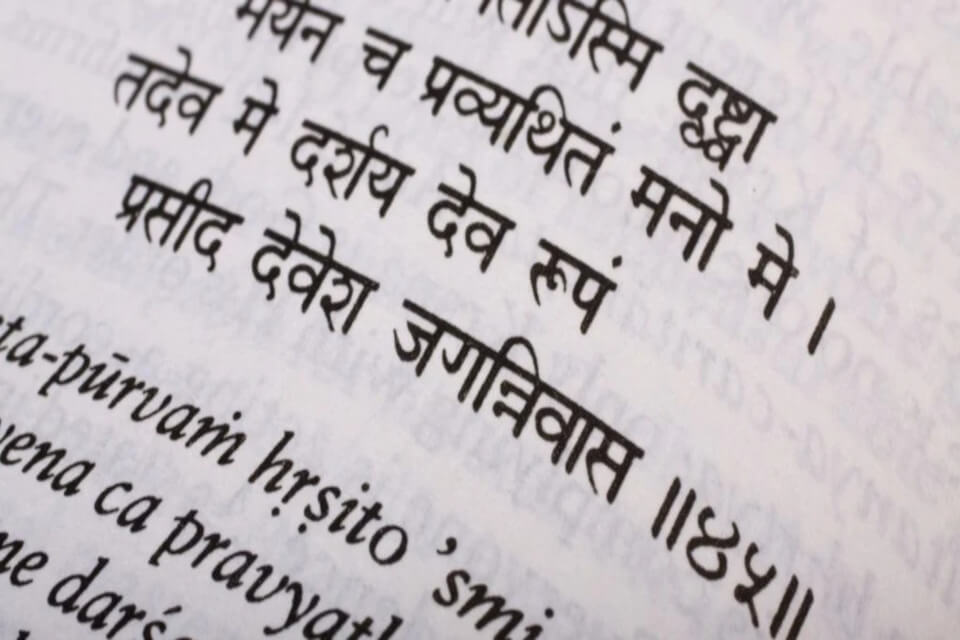Mahabharata: a long and epic poem

Mahabharata is a compound name: mahâ, in Sanskrit, means “big” – a mahârâdjâh and mahârânî are respectively a “big king” and a “big queen”, but mahâ means also “total”, in the sense of “which includes everything”. It is the longest poem one could ever read.
The first song testifies to the encompassing ambition of the poem and its philosophical orientation: For all that concerns the aims of man: conformity to the Dharma (the Order), material wealth, love desire, deliverance [rebirths], what is in this text is also found elsewhere. What is not there, nowhere. In ancient Sanskrit, bhârata means poets, actors, and acrobats of the most remote times of India.
This epic text is, without doubt, the largest and the oldest work of the world: compared to the Bible, its volume is 15 times bigger than the Bible, and 15 centuries older. It is said that to understand India goes through the reading of the Mahabharata. For Hindu Indians, this book is not only a sacred text, going beyond its spiritual component, it is also a guide to daily life.
Mahabharata: main events throughout the story
Pandu, king of Hastinapura, died hunting in the Himalayas and his elder brother Dhritarashtra, who, blind, had had to give him the throne, returns to power. Pandu had 5 or 6 sons including Arjuna, the hero of the Bhagavad-Gita.
Dhritarashtra had one hundred sons, the Kaurava, whom he had raised with his five nephews, the Pandavas. But Dhritarashtra never accepted the preeminence of his younger brother Pandu, and raised his sons with the determination that they will one day reign over the world instead of the Pandavas.
In spite of the fairness of the king, discord soon arises between the first cousins. Duryodhana, the eldest of the Kauravas, jealously, forces the Pandavas back into the forests. Dhritarashtra even attempted to harm their lives and that of their mother Pritha or Kunti. But these plots were thwarted by Krishna. Krishna tried to appease the conflict between the Kaurava and the Pandavas.
Inevitably, Pandu’s five children went to King Draupada to wed his little girl Draupadi. One of them, Arjuna, triumphs with the trial of the bow and, in the mountain style, Draupadi becomes the spouse of the five siblings. Thanks to this marriage, they force their cousins to give them back a portion of the fatherly legacy and settle in Indraprastha (Delhi). In any case, they don’t keep it long, in light of the fact that their senior Yudhishthira, more big talker than daring, is an incredible player.
Dhritarashtra surrendered the throne and withdrew to the mountain where he will before long die in a timberland fire and the Pandavas move to Hastinapura. Following quite a long while of guideline, the Pandavas choose to resign on Mount Meru with Draupadi.
It is in this way a fratricidal battle on two levels: from one viewpoint the Kaurava and the Pandava plunge from a similar predecessor, then again Krishna battles against his own military. Also, Arjuna and Krishna are cousins.
You may also like:
- Hindu Gods and Goddesses
- Ganesha: symbolism and meaning of this Hindu god
- Smriti and the Hinduism teachings

